Whether you decided to replace your old water heater or put in a brand new one, knowing how long it will take is important to know when to squeeze it into your schedule. That's why we have consulted professionals for you.
Usually, licensed plumbers take two to three hours to have the same unit or type of water heater installed. It will only take a bit longer if there are complications encountered during the process.
You may be wondering why it takes this long to complete the procedure. We will discuss them explicitly to help you better understand this topic. So, keep reading.
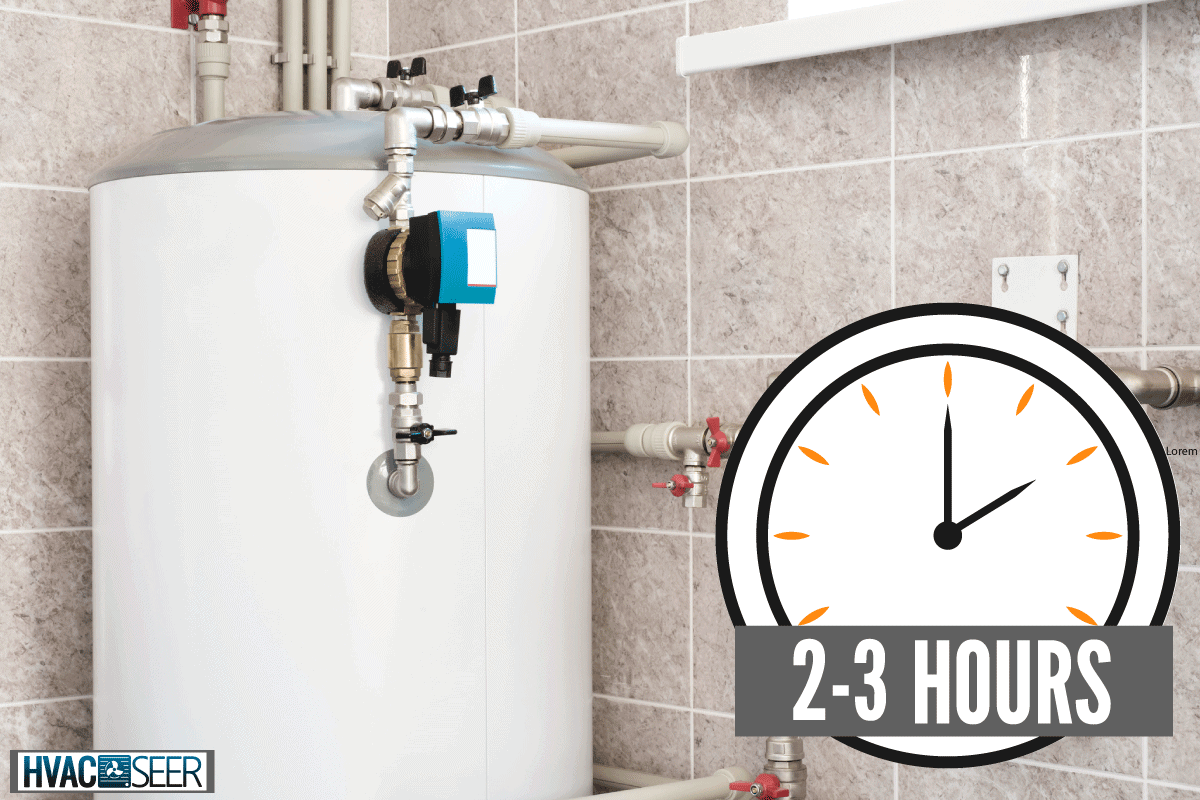
How Long Does Installing A Water Heater Take?
The task requires a decent amount of time since there are three phases involved in a basic water heater installment:
- Removal of the old water heater (45 to 60 minutes): It includes disconnecting of power and water supply as well as vent pipes, water draining, and tank removal.
- Positioning the new heater unit (about 30 minutes): This consists of bringing the new unit where it will be placed, unboxing, and positioning the tank.
- Connecting the system (24 to 60 minutes): This phase consists of connecting the tank to the water and power supply and adjusting of setting upon testing.
Is Installing A Water Heater Difficult?
Installing a water heater is not as difficult as you might think, but it is recommended to let a certified professional plumber do the job because a little mistake you might make can lead to negative results. Here are some reasons why you need to do so:
- You might choose the wrong size. Tank water ranges from 30 to 120 gallons. The size you need depends on the number of people who'll use it. Getting a small tank can cause a shortage of hot water while large tanks waste energy.
- It's possible for you to situate the system in the wrong location. There are prohibitions and restrictions on spaces where you can install your water heater. This depends on your local codes. That is why you shouldn't skip getting a permit before anything else.
- Failing to follow instructions like putting a drain pan under the tank and strapping down the water heater can lead to flooding. These can promote a thriving environment for mold, which may damage your water quality.
- Setting up the pressure relief valve improperly may cause the water heater to burst or explode.
- Utilizing the right size and type of pipes, metals, or screws is essential to achieving the water heater's maximum performance.
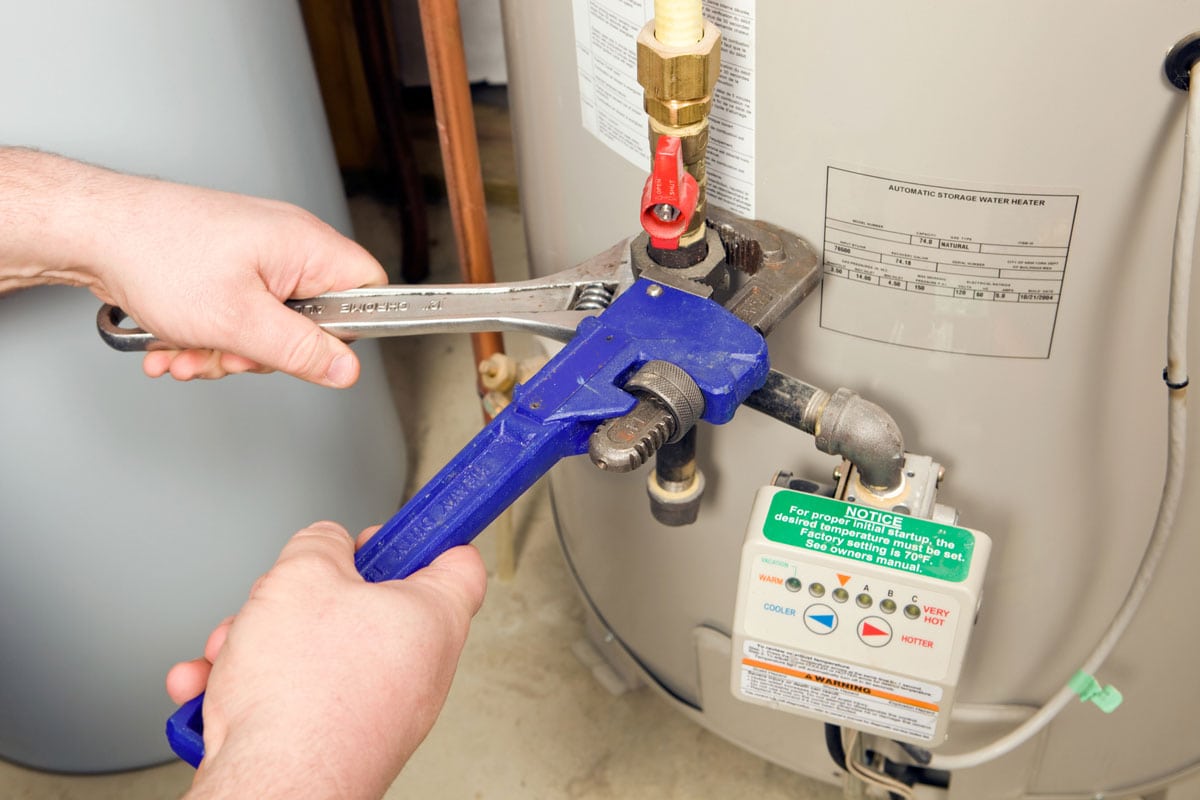
Read more: Do You Need A Permit To Replace A Water Heater?
How Long Does A New Water Heater Take To Heat Up?
Different types of water heaters take different times to heat up. Know how long for your unit to warm in order to be aware of when to switch it on.
- Solar heater—60 to 80 minutes
- Electric conventional tank—60 to 80 minutes
- Gas or propane heater— 30 to 40 minutes
- Tankless heater—0 seconds
Check out this article: How Long Should A 40-Gallon Water Heater Stay Hot?
How Much Is Hot Water Heater Installation?
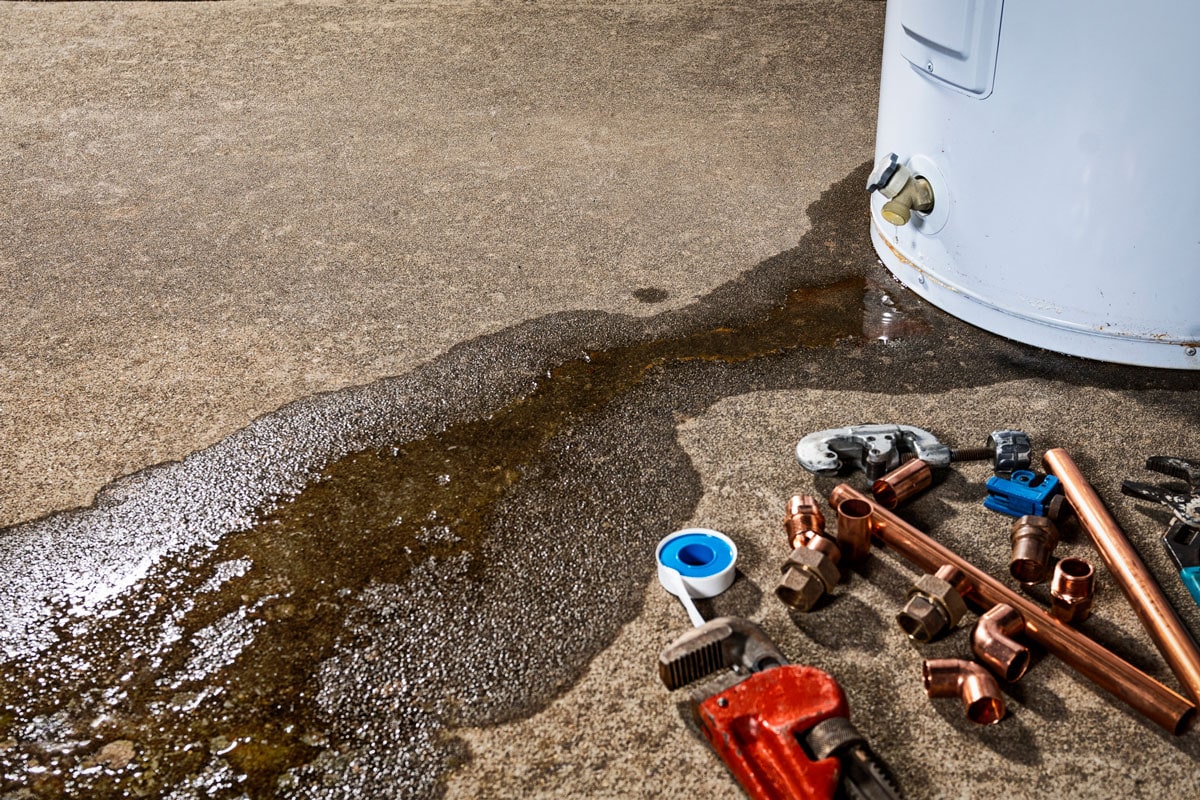
The average cost for the whole installation ranges from $1,000 to $3,500, including the labor. Below is the breakdown of this price:
- Tank-type—ranging from $650 to $2,100
- Tankless-type—$1,000 to $3,500
- With direct vent—additional $500 to $1,000
- With power vent—additional $300 to $500
Meanwhile, the cost of labor ranges between $45 to $150 per hour. You might also need an electrician to add new circuits for $50 to $100 per hour.
What Size Of Water Heater Do I Need?
Your water heater's size depends on how many people are using it and your hot water usage during the peak hour of the day, which we'll talk about in a while. But for now, let's look at the estimated capacity tank size you might need.
- For one to two people: 30–40 gallons
- For two to three people: 40–50 gallons
- For three to four people: 50–60 gallons
- For four to five people: 60–80 gallons
Keep in mind that this is a rough estimation and may vary from family to family. To find out the exact size of water heater you need, follow this guide:
Step 1
Determine the peak hour demand (PHD) in your household. Peak hour demand is the total amount of water you use during the busiest hour of the day.
It can be in the morning when everyone's showering at the same time to get ready for work or school, then using the kitchen sink for preparing breakfast and washing the dishes afterward.
Do this by adding the applicable information in the table below. This is a sample worksheet from the US Department of Energy. Replace the uses on the first column, depending on your activities using hot water.
| USE | AVERAGE GALLONS OF HOT WATER PER USAGE | TIMES USED DURING 1 HOUR | GALLONS USED IN 1 HOUR | ||
|---|---|---|---|---|---|
| Shower | 20 | × | = | ||
| Shaving (.05 gallon per minute) | 2 | × | = | ||
| Hand dishwashing or food prep (2 gallons per minute) | 3 | × | = | ||
| Automatic dishwasher | 7 | × | = | ||
| Clothes washer | × | = | |||
| - Top-loader | 25 | ||||
| - H-Axis | 15 | ||||
| Total Peak Hour Demand | = |
Step 2
After determining your PHD, look at the first-hour rating (FHR) on your manufacturer's site. FHR is the number of gallons of hot water your heater can supply per hour.
If the number matches your PHD, then it can meet your household's needs and won't have a problem with a shortage.
For more details, check out this post: How Long Does It Take To Fill A Hot Water Heater?
How Long Do Water Heaters Last?
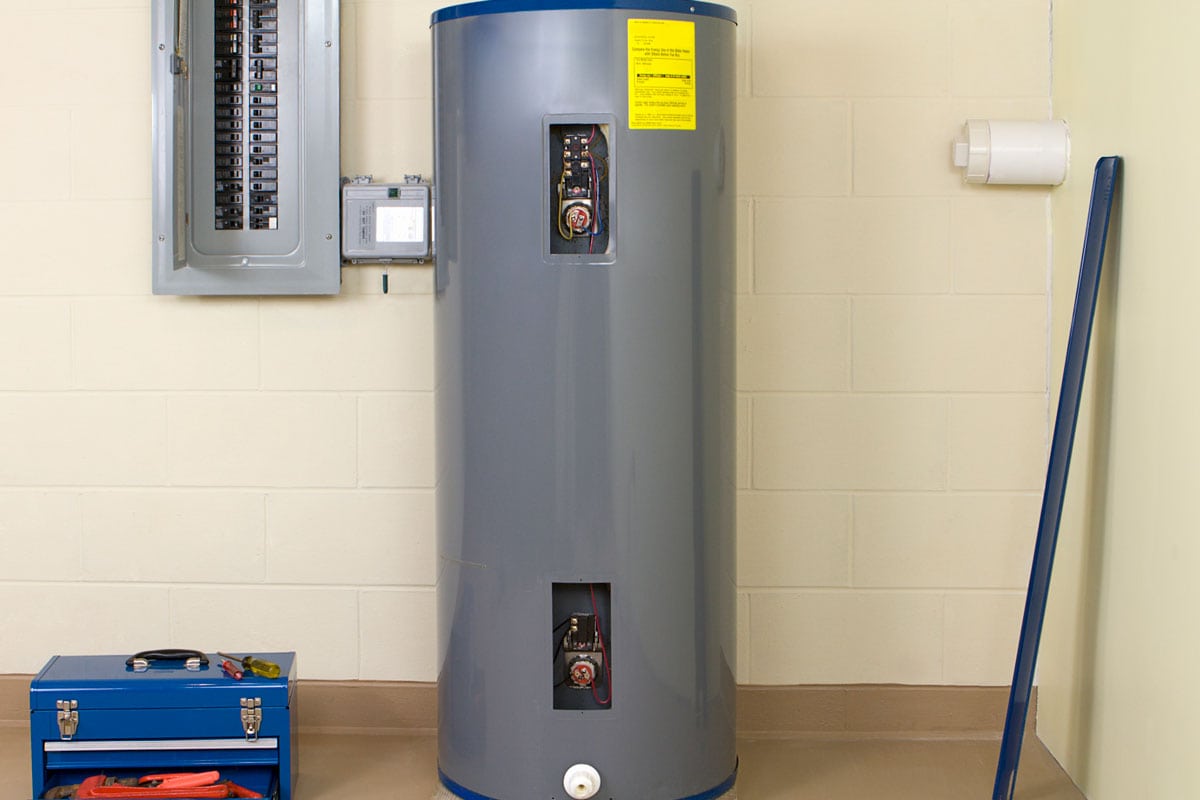
A water heater's life expectancy depends on how it is installed, maintained, and used. On average, a traditional water heater can last up to eight to 10 years.
A heater's lifespan may be shortened once there is corrosion inside the tank. On the other hand, a tankless water heater can keep going for 20 years or more from the day of installation.
Are Tankless Water Heaters Better?
It depends on your location. Tankless heaters are a very good option since they instantly heat cold water and help in saving energy consumption. However, if you're living in areas prone to outages, consider the following:
Pros
- Do not take up space since there's no tank. It can be attached to the wall because of its small size (10 x 7 inches for electric type and 30 x 20 inches for gas-fired units).
- It's energy-efficient. Tankless heaters, compared to traditional types are 24–34% more energy saving if 41 gallons or less of water is used.
- They are economical. Consuming less energy means a decrease in your electric bill.
- Unrestricted supply of heated water is the best asset of this unit. You don't have to worry that you'll run out of warm water during shower.
Cons
- A tankless heater is dependent on electricity. If there's a sudden power shortage, your warm water is affected.
- It costs more—from the unit up to the installation fee. Keep in mind that a tankless heater's lifespan is longer and energy saving.
- Even if tankless water heater heat up the cold water right away, using it in a multiple outlet at the same time may harm its performance since you are demanding more than it can generate.
Learn more here: Where To Install A Tankless Water Heater
How To Maintain A Water Heater
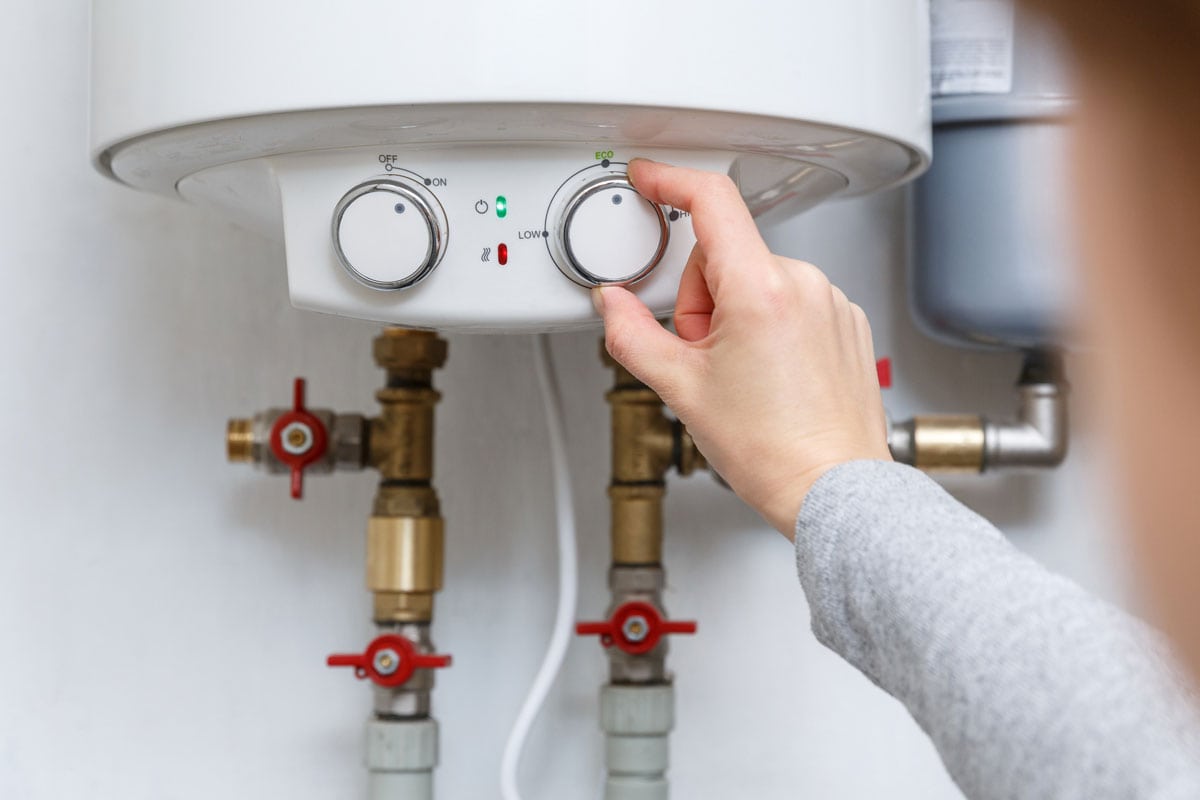
After installing your water heater, the best way to make it last is to take care of it since hot water is vital to improving functionality in your household. Not only does it save you from cold shower, but heated water also kills germs.
Here are some tips to maintain your water heater:
- Inspect the water heater regularly with the help of a professional or by yourself. This can prevent minor issues before they become worse.
- Clean the exterior by draining it once a year.
- Insulate the pipe and tank to prevent the water from getting dirt and freezing during winter.
- Regularly test the temperature pressure relief valve. If the water comes out of the discharge pipe when you lift the lever and closes once you have lowered it, that means it is functioning properly.
- Replace the anode rod and air intake filter once every five years, give or take. It can protect the water quality inside the tank.
- Set the temperature to 120 °F or lower. This level is enough to heat the water without burning the skin. It decreases your monthly bill by not taking extra energy to maintain a higher temperature.
When To Call A Professional
Below are the signs that your water heater needs a professional check-up:
- The water has a foul smell.
- It blows rusty water.
- It's not producing hot water.
- Flooding was caused by leakage around the water heater.
- Machine is noisy when running.
Learn more about this here: What Happens When A Water Heater Goes Bad?
Takeaway
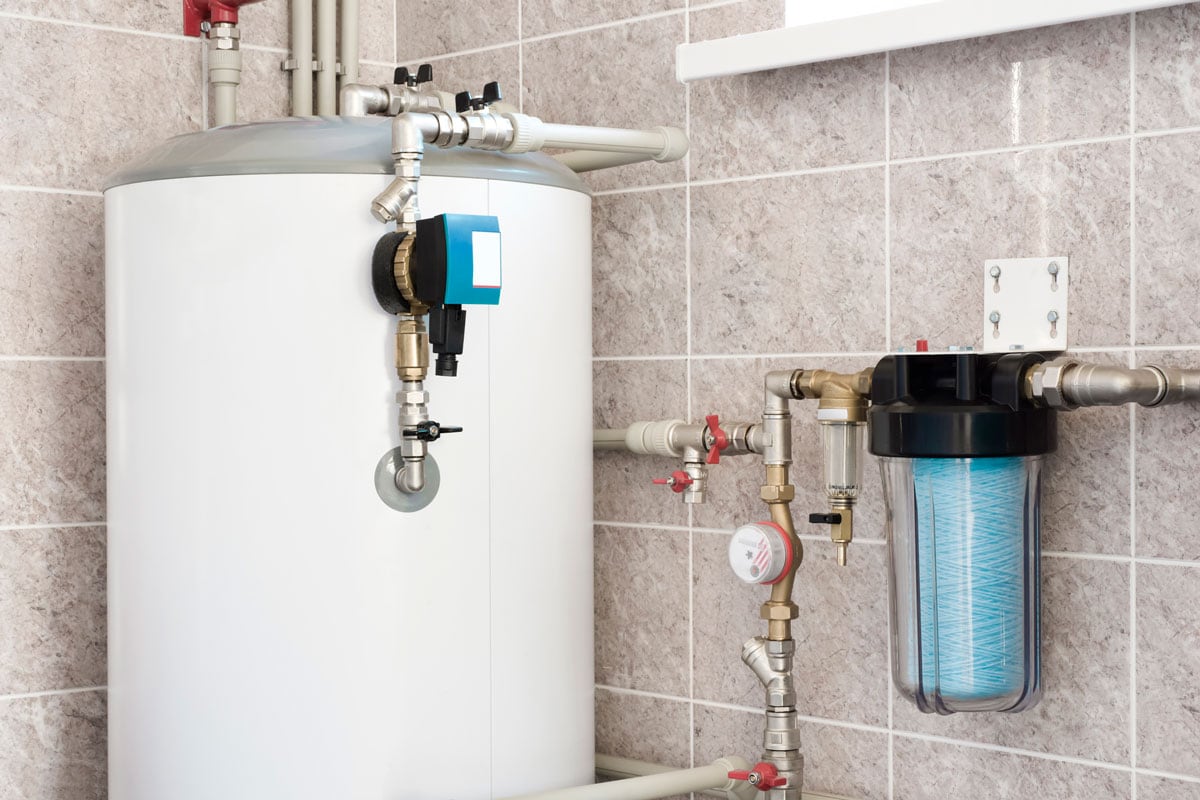
Ask your hired plumber how to adjust the system in case calling for help is not possible. It's very important to be knowledgeable about the appliances we buy so we know how to maximize all that they can offer. Cheers to your newly installed water heater!
